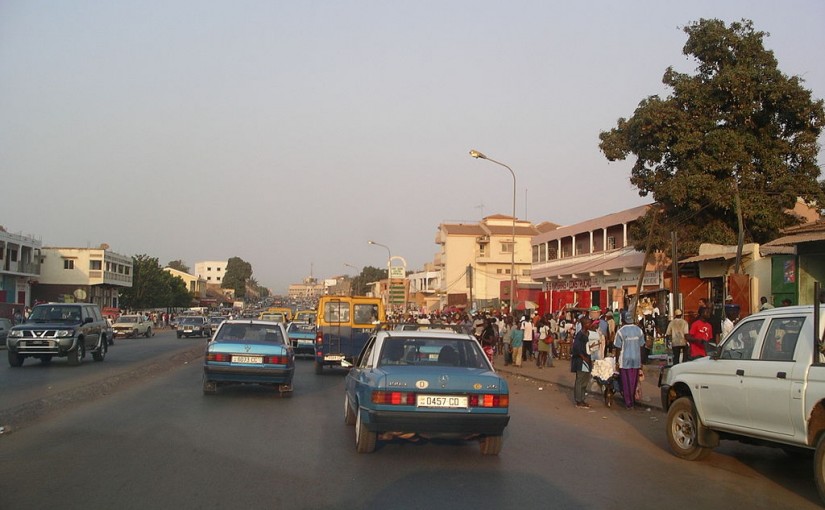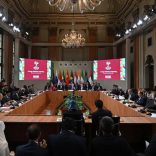UN court backs E Guinea in Gabon dispute over islands in oil-rich waters
Business climate improvement in Guinea-Bissau “masked” by politics

Wikicommons / A view of Bissau
Guinea-Bissau has been improving its business climate and is an under explored “gateway” to a large regional market, but internal political risks have driven investors away, according to the first investment guide to the country.
Published by the newly formed Portugal-Guinea-Bissau Chamber of Commerce and Industry, the guide presented in Lisbon emphasises the importance of the integration of the African country in the Economic Community of West African States (ECOWAS), with a population of 320 million people, as well as the “advantages for relationships with investors,” derived from membership of the regional monetary union (UEMOA).
This membership, it said, provides exchange rate stability due to the fixed parity between the CFA franc, used by 80 million people in seven countries, and also “freedom of capital repatriation and profit,” with greater regional integration held back only by a lack of basic infrastructure, including ports, roads and energy.
“The challenges for the competitiveness of Guinea-Bissau include strengthening of basic public services in health, education, basic infrastructure for water, sanitation, energy, transport and communications; and primarily the recovery of the manufacturing sectors, which requires private investment stimulus,” the Guide said.
In the last edition of the World Bank’s ranking “Doing Business” report, the country was, along with Sao Tome and Principe, the country that recorded the most positive performance among Portuguese-speaking countries, rising to 172nd place.
The improvement was achieved thanks to the introduction of a new conciliatory procedure for companies in financial difficulties and a preventive settlement process that helps insolvency situations, something that is also noted in the Guide put together by the Portugal-Guinea-Bissau Chamber of Commerce and Industry.
But despite progress on “simplifying administrative and legal procedures and the creation of a system of incentives for internationally competitive investment”, affecting the speed of opening new businesses, “investors’ perception of the ease of doing business is very hampered by political instability,” it said.
In the current term, which began in 2014, Guinea-Bissau has had five governments and the most recently nominated one is not part of the party that won the last elections, undermining its chances of success.
Nevertheless, some investors have persisted with their investments in the country, notably China, which is investing in the construction of infrastructure in the country.
At the end of November, China’s ambassador in Bissau, Wang Hua, announced that his country will finance the construction of a highway between the city of Bissau and Safi, a town which is 14.4 kilometres north of the capital, and that Chinese technicians were already in the Guinean capital to prepare the start of the work.
The project, worth US$16.5 million, will make it easier to transport commercial products from interior of the country to the capital.
The government of Guinea-Bissau on Thursday signed an agreement with Chinese businessman Xuguang Li, the president of the Shenyang Lan Sa Trading Co Ltd, for the construction of a biomass power plant to supply the cities of Bissau and Mansoa in the centre of the country.
In the introduction to the Investment Guide, the president of CCIPGB, Jorge Sousa, emphasised the authorities’ efforts to encourage foreign investment and the country’s situation as an “excellent gateway” to the regional market.
“By focusing on Guinea, risks are being taken, but are others are diluted, in markets where we have always focused. Diversification of risk is a strategy for companies not to be dependent on one or another market,” Sousa said.













Leave a Reply
Be the First to Comment!
You must be logged in to post a comment.
You must be logged in to post a comment.